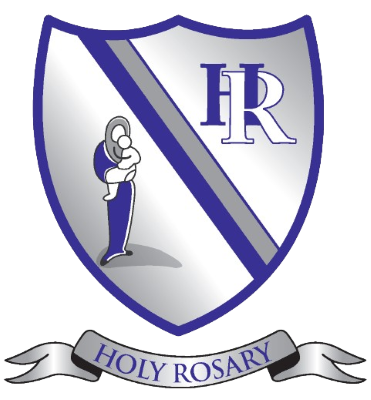British Values
Background
The Department for Education has introduced a statutory duty for schools to promote British Values more actively from September 2014 and to ensure they are taught in schools. The government set out its definition of British Values in the 2011 Prevent Strategy. The five key British Values are:
- Democracy
- The rule of law
- Individual liberty
- Mutual respect
- Tolerance of those of different faiths and beliefs
- School Philosophy
In accordance with the school Mission Statement, Holy Rosary is a school where children, staff and governors:
"Together as a family we love, learn and grow in the presence of God"
This philosophy permeates all aspects of school life. As such, we believe that the values of democracy, rule of law, liberty, respect and tolerance are explicit and implicit in the Christian teaching and values of this school. As such, these five key values have long been embedded in the philosophy and life of Holy Rosary.
Securing British Values
Holy Rosary Catholic Primary School uses strategies within the National Curriculum and beyond to secure British Values for pupils. The examples that follow show some of the many ways in which we seek to instil these.
Democracy
Democracy plays a key role within the day to day life of our school. Pupils have the opportunity to have their voices heard through our proactive school. At Holy Rosary, all school council representatives are voted on by their class peers. The election process is explained in detail and the voting process takes the format of an election.
Our pupils also evaluate Collective Worship and have influence on whole school practice. Individual pupils also have the opportunity to put themselves forward for roles and responsibilities such as being a peer mediator or play leader for younger children.
To practise our Democracy skills, each year, we vote for the members of our school council. They play a crucial role in supporting our students' academic, social, and emotional development. Here are our current School Council below!
School Councillors
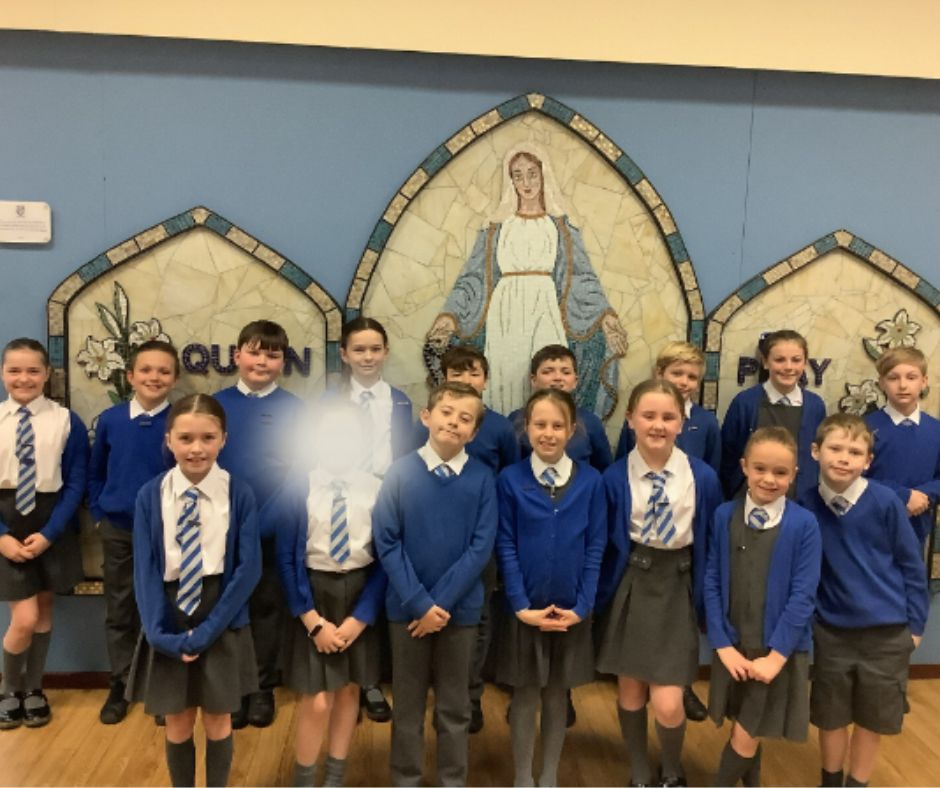
Our School Council represents the views of all our pupils. It gives children the opportunity to make their voices heard and feel part of the whole school community with a focus on helping our school, community and world environment. A new school council representative is elected each year. Children in classes Y3-Y6 vote for the nominee they think would be the best representative for their class.
The Council meets with Mrs Wall every other Thursday, during school, to express their views and to make decisions. Each half term they also discuss their proposals with the headteacher and provide an update of their meeting agendas. This half term Mrs Stevenson invited the school council for breakfast. The children enjoyed sharing their ideas with Mrs Stevenson on what works well in our school and what they think could be better. Mrs Spalenice was also a guest speaker. She has given the councillors their first job of gathering ideas and planning an ‘Express yourself day’ during World Mental Health Week.
This was also a great excuse for the councillors to enjoy some delicious croissants, cakes and fruit juice. Our School Council are very keen to help make our school the best it can be!
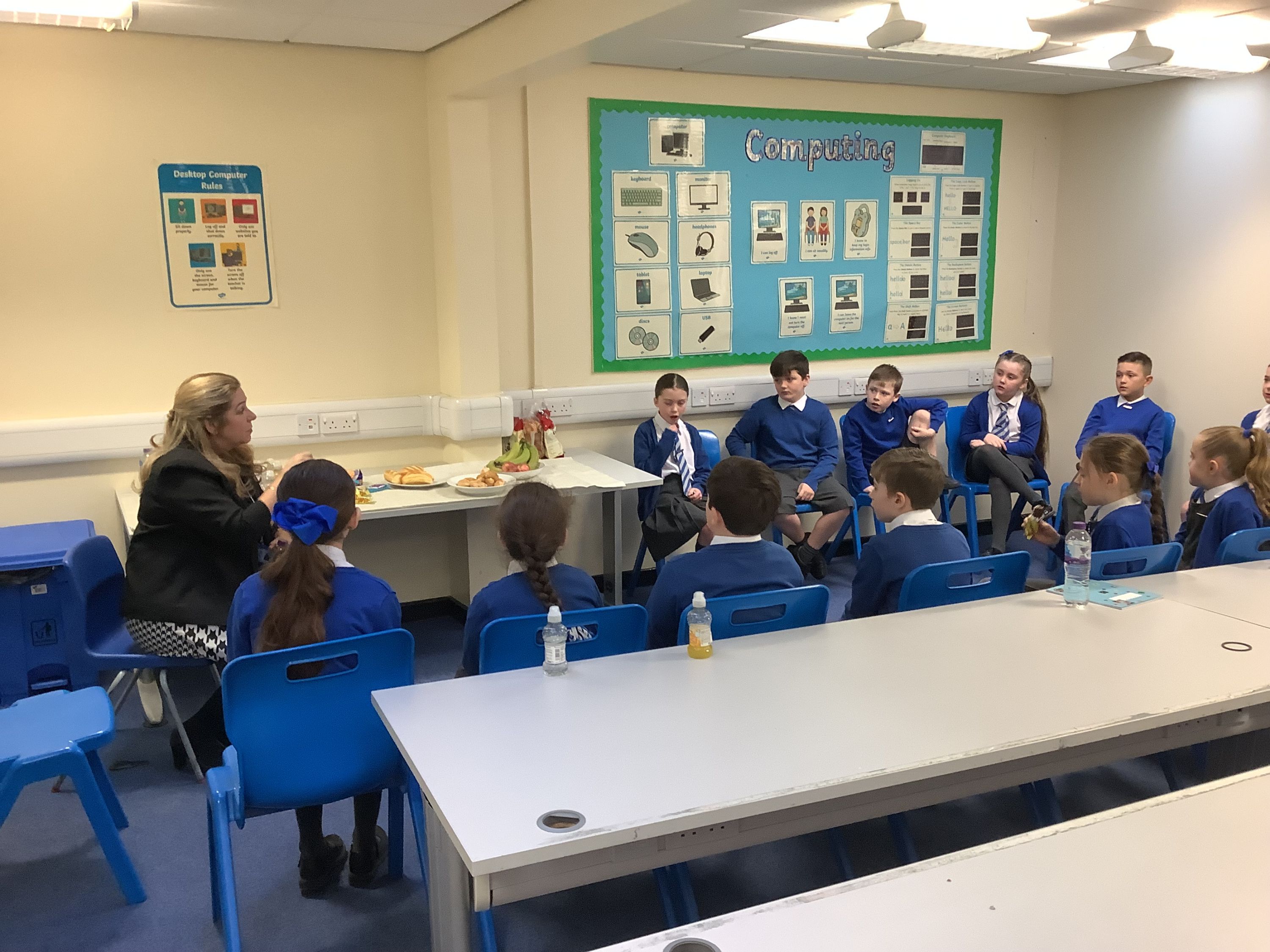
The rule of law
The importance of rules and laws, whether they be those that govern our school or our country, are referred to and reinforced often, such as in assemblies and when reflecting on behaviour choices. At the start of the school year, each class discusses and sets its own class rules, these are clearly understood by all and seen to be necessary to ensure that every class member is able to learn in a safe and ordered environment.
Pupils are taught the value and reasons behind laws, that they govern and protect us, the responsibilities that this involves and the consequences when laws are broken. These values are reinforced in different ways:
- Visits from authorities such as the police and fire service.
- During Religious Education, when reflecting upon rules for particular faiths.
- During other school subjects, where there is respect and appreciation for different rules – in a sports lesson, for example.
Individual liberty
Within school, pupils are actively encouraged to make choices, knowing that they are in a safe a supportive environment. As a school we educate and provide boundaries for young pupils to make choices safely, through provision of a safe environment and empowering education. Pupils are encouraged to know, understand and exercise their rights and personal freedoms and advised how to exercise these safely, for example through our ESafety and PSHE lessons. Whether it is through choice of learning challenge, of how they record, of participation in our numerous extra-curricular clubs and opportunities, pupils are given the freedom to make choices.
Mutual respect
Respect for each other, for our school and to others in our community is an integral part of our school ethos and Behaviour Policy. Pupils see staff model this by treating each other with respect and courtesy. We promote this in the way our children interact with each other in their classes and during social times. Mutual respect and fair play is also discussed and promoted within sports based activities.
Tolerance of those of different faiths and beliefs
The Catholic faith is fundamental to life at Holy Rosary. We also understand and celebrate the diversity of the faith community in which we live. Lessons, assemblies and focus weeks encourage this. Members of different faiths or religions are encouraged to share their knowledge to enhance learning within classes and the school and every opportunity is used to welcome visitors to the school. Children also visit places of worship.
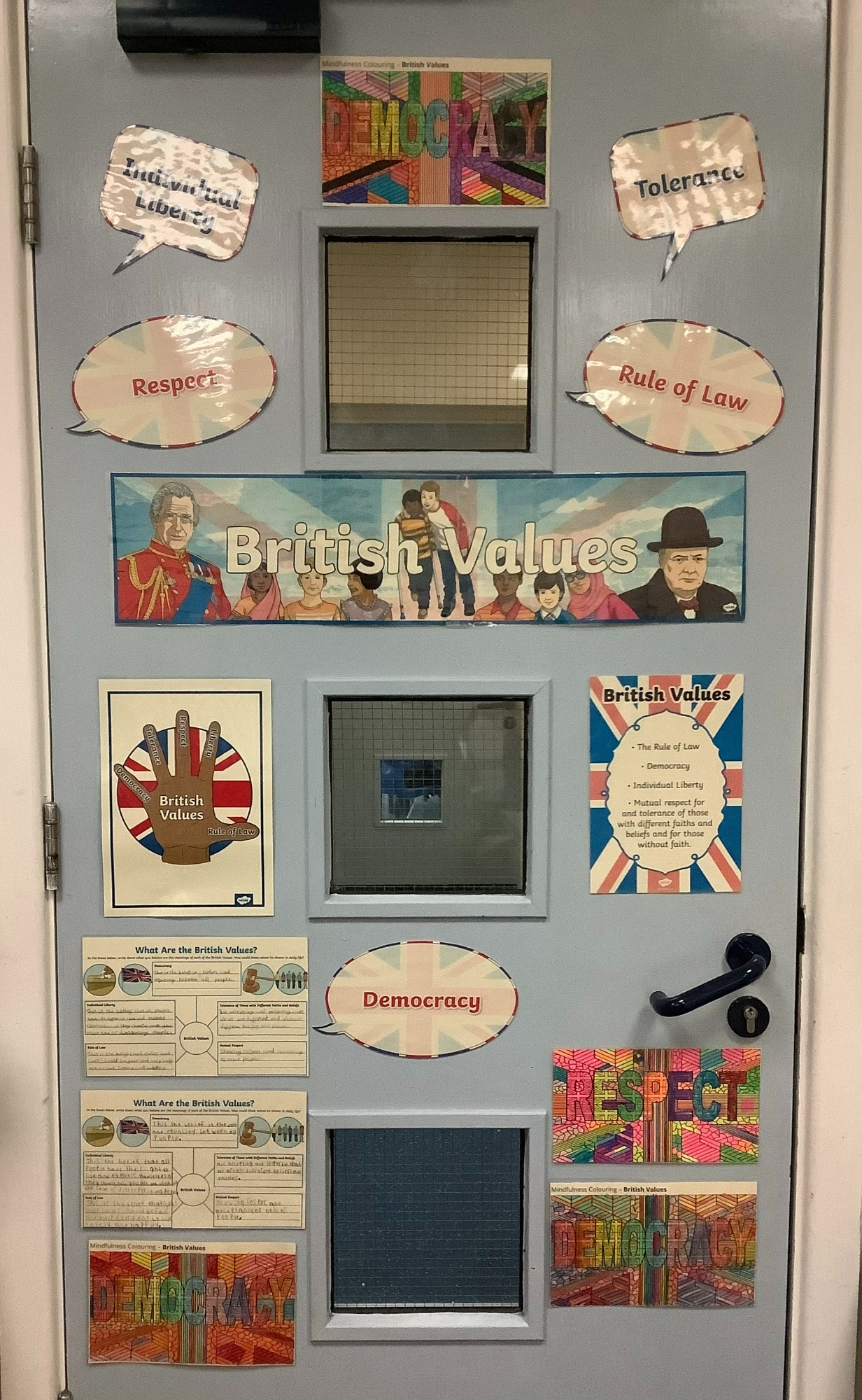
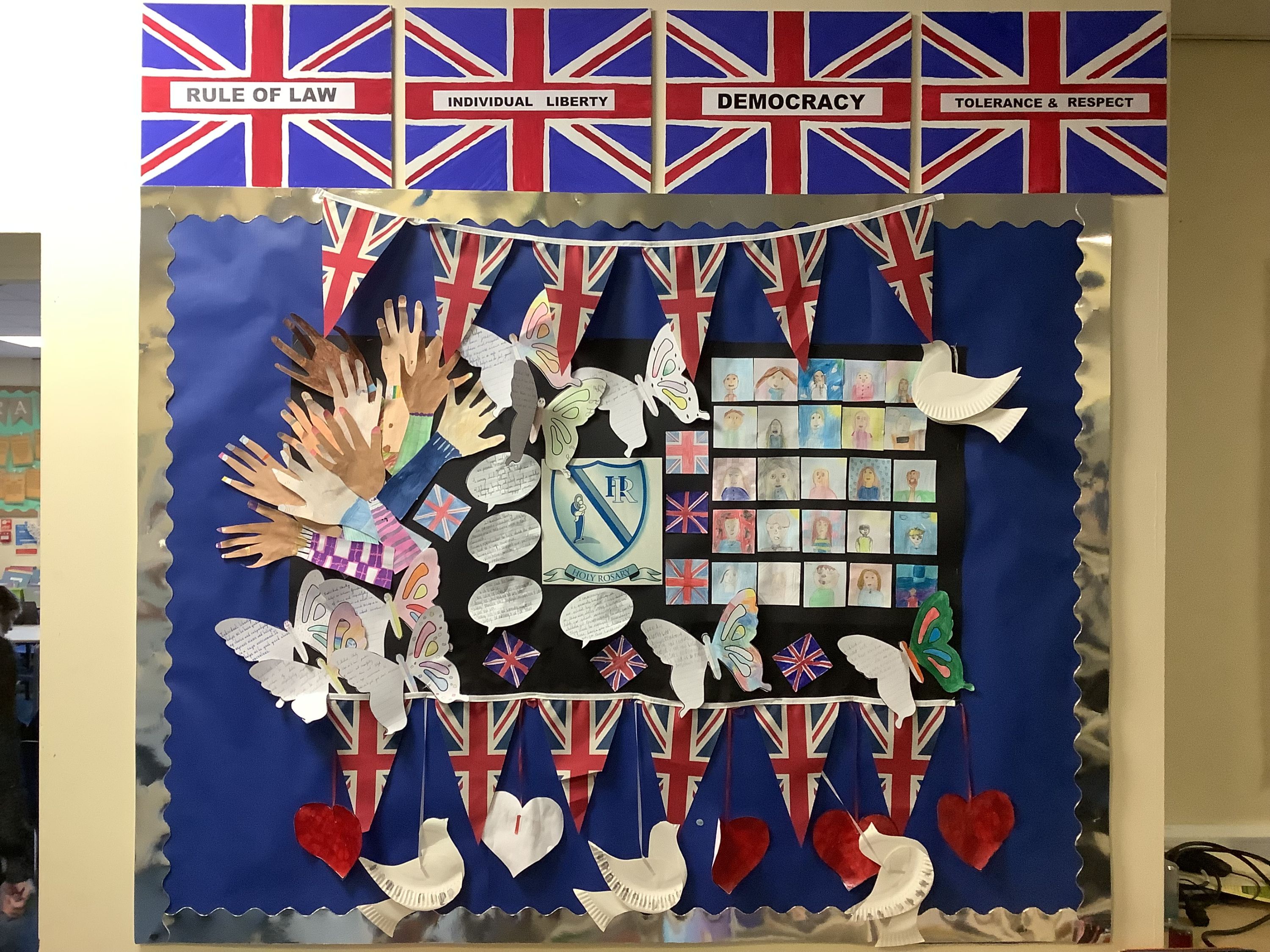
Picture News and Protected Characteristics
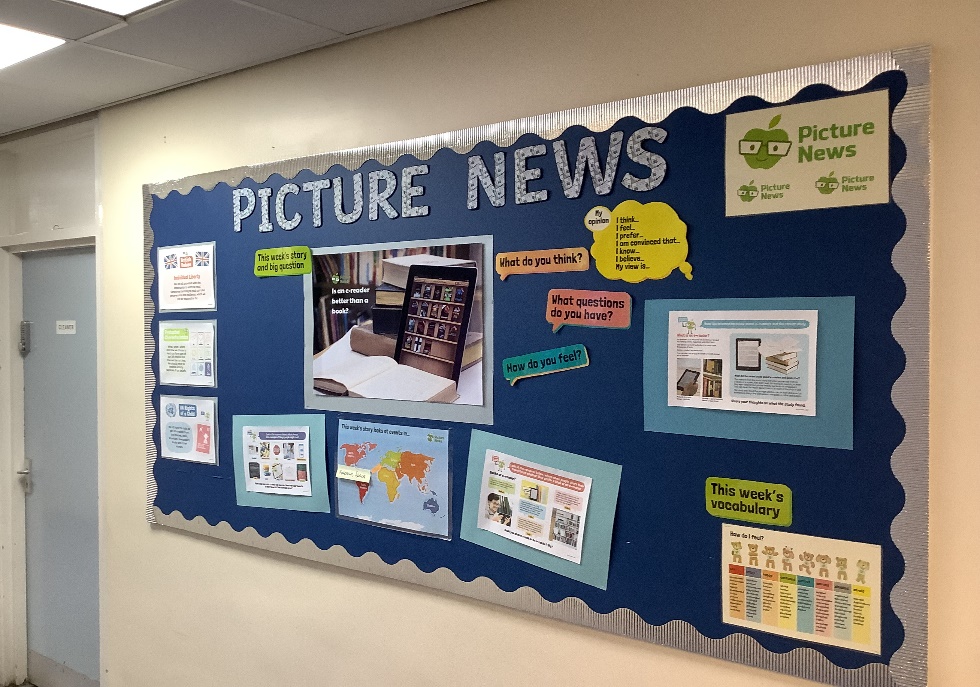
Picture News enables us to deliver much of the work we do in school on British Values and Protected Characteristics in a planned age-appropriate way. We share Picture News in our Key Stage assemblies. It provides a different focus each week, in the form of a powerful image and a 'Big Question.'
Picture News aims to support pupils’ development of their spiritual, moral, social and cultural elements of learning and behaviour. It encourages children to engage with current affairs alongside worldwide news stories and provides opportunities for children to discuss and express their own views around these issues.
